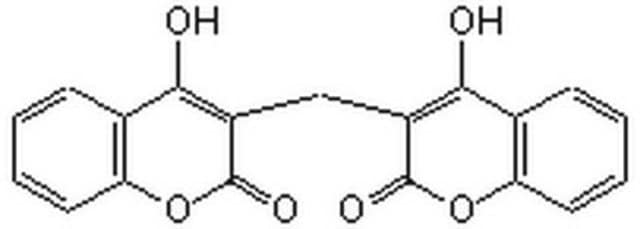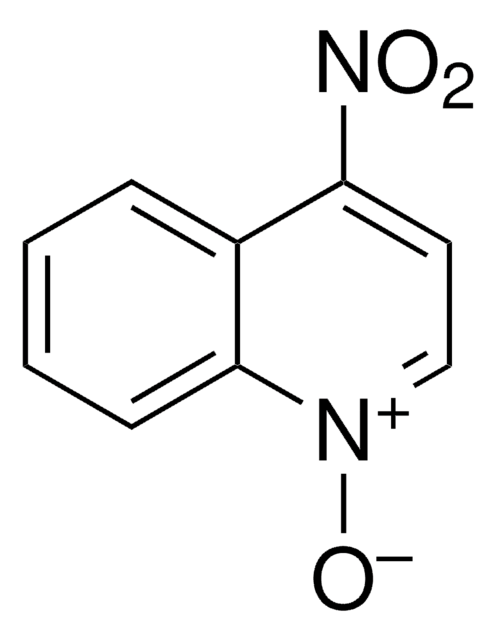M1390
3,3′-Methylene-bis(4-hydroxycoumarin)
Sinónimos:
Bishydroxycoumarin, Dicoumarol, Dicumarol
About This Item
Productos recomendados
biological source
synthetic (organic)
Quality Level
assay
≥98% (TLC)
form
powder
mp
290-292 °C (lit.)
solubility
pyridine: 50 mg/mL, clear, faintly yellow to brownish-yellow
SMILES string
OC1=C(CC2=C(O)c3ccccc3OC2=O)C(=O)Oc4ccccc14
InChI
1S/C19H12O6/c20-16-10-5-1-3-7-14(10)24-18(22)12(16)9-13-17(21)11-6-2-4-8-15(11)25-19(13)23/h1-8,20-21H,9H2
Inchi Key
DOBMPNYZJYQDGZ-UHFFFAOYSA-N
Gene Information
human ... CYP2C9(1559) , VKORC1(79001)
¿Está buscando productos similares? Visita Guía de comparación de productos
Biochem/physiol Actions
signalword
Danger
hcodes
Hazard Classifications
Acute Tox. 3 Oral - Aquatic Chronic 2 - STOT RE 1 Oral
Storage Class
6.1C - Combustible acute toxic Cat.3 / toxic compounds or compounds which causing chronic effects
wgk_germany
WGK 3
flash_point_f
Not applicable
flash_point_c
Not applicable
ppe
Eyeshields, Faceshields, Gloves, type P2 (EN 143) respirator cartridges
Certificados de análisis (COA)
Busque Certificados de análisis (COA) introduciendo el número de lote del producto. Los números de lote se encuentran en la etiqueta del producto después de las palabras «Lot» o «Batch»
¿Ya tiene este producto?
Encuentre la documentación para los productos que ha comprado recientemente en la Biblioteca de documentos.
Los clientes también vieron
Nuestro equipo de científicos tiene experiencia en todas las áreas de investigación: Ciencias de la vida, Ciencia de los materiales, Síntesis química, Cromatografía, Analítica y muchas otras.
Póngase en contacto con el Servicio técnico













